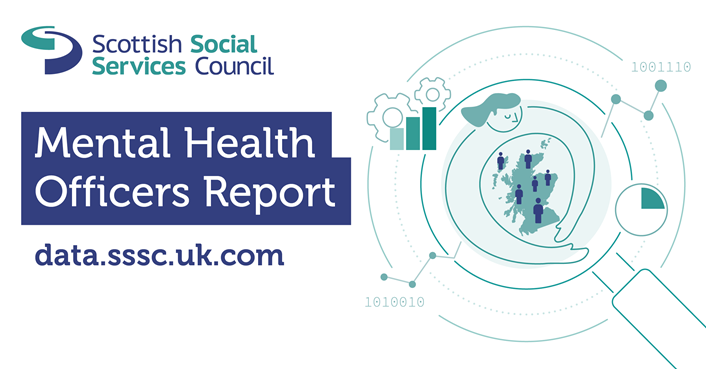The report, published by the Scottish Social Services Council (SSSC) today, shows although the number of local authorities saying they had a shortfall had fallen to 23, they estimated an extra 1,911 hours a week for MHO work was needed – equivalent to 53 full time MHO posts (an increase of four since 2019).
MHOs are specially trained social workers who carry out statutory duties in relation to mental health legislation. The reported shortfalls in staffing could result in delays to people accessing services, appropriate treatment and care and hospital discharges.
Lorraine Gray, SSSC Chief Executive said: ‘While it’s positive to see fewer local authorities reporting they are short of MHOs, there are still challenges as the number of full time MHOs needed to meet the shortfall in hours has increased to 53, up from 49 the previous year’.
‘Our data reports help local authorities, the Scottish Government and others with future workforce planning, including succession planning and making sure enough people are undertaking the training required to join the workforce.
‘Although 89 MHOs left their posts in 2020, 51 social workers completed their MHO Award. It’s also positive to see the percentage of MHOs aged under 45 has increased from 25.8% in 2016 to 30.8% in 2020.’
Key points from this year’s MHO report
- There were 704 filled MHO posts in 2020, which is one more than the 703 of 2019.
- The percentage rise in estimated MHO hours worked was 3.5%.
- A small drop was seen in the estimated average time spent by MHOs from mental health teams on MHO work.
- A rise was seen in the estimated average time spent by MHOs from non-mental health teams on MHO work.
- Exclusive MHOs rose by 6.4%, non-exclusive MHOs fell by 1.9% and cover MHOs fell by 8.6% (see note*).
- The estimated amount of MHO hours worked per 10,000 head of population in Scotland has increased from 20.5 in 2019 to 21.25 in 2020.
- Between December 2019 and December 2020 staff left 89 MHO posts, this is five less than the high of 94 in between December 2018 and December 2019.
- There was a decrease in the number of authorities reporting a shortfall in MHOs, however there was an increase in the total number of weekly additional hours required.
- It remains difficult to comment on the ethnicity profile of the workforce due to levels of non-reporting of MHO’s ethnicity.
Our role supporting MHOs
We approve and quality assure the three university MHO programmes in Scotland, which includes feedback from people who use mental health services to inform improvements in the delivery of MHO education and practice.
We also work in partnership with the national MHO forum, Social Work Scotland and the Scottish Association of Social Workers to develop resources to support practice including learning in relation to new mental health legislation and the annual MHO study day.
Download the 2020 Mental Health Officers Report here.
Note
*An exclusive MHO position is one where the job contract specifies the individual is appointed primarily to carry out statutory MHO work. Non-exclusive MHOs also carry out non-MHO work, while cover MHOs step into the role when neither exclusive or non-exclusive MHOs are available.
